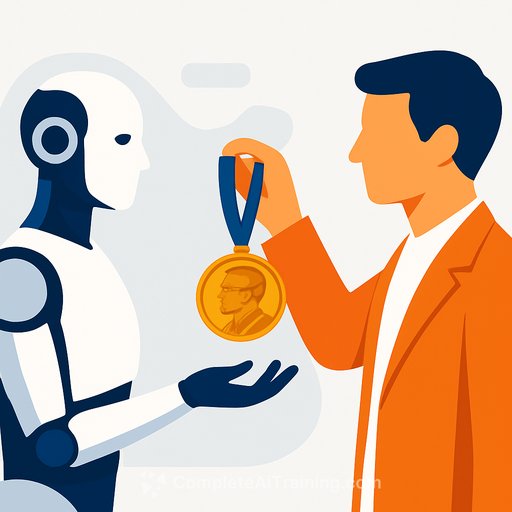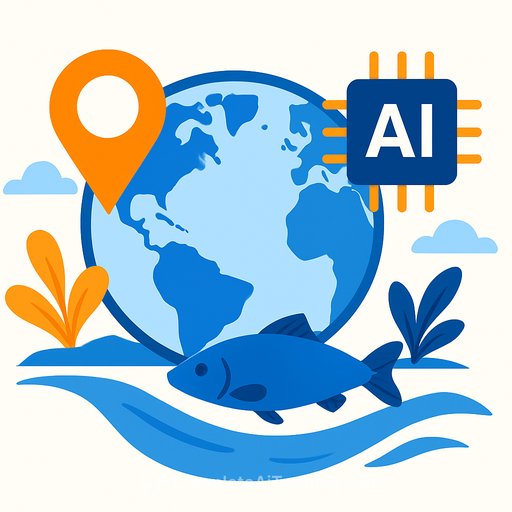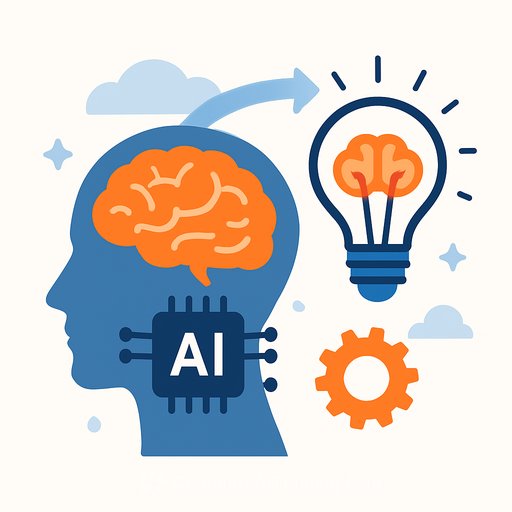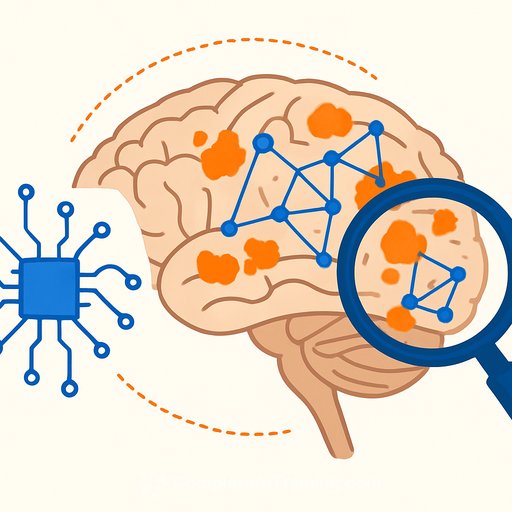When Will AI Be Smart Enough for a Nobel Prize?
AI now contributes to discoveries that used to be credited only to humans. That forces a hard question for science: could an AI ever be awarded a Nobel Prize, and what threshold would it need to cross?
The answer hinges on three issues researchers care about: autonomy, attribution, and institutional rules. If AI keeps advancing, excluding it from recognition may become difficult to justify. But the Nobel system was built to honor human intent and responsibility, and that standard still stands.
What the Nobel rules allow today
The Nobel Prizes are awarded to individuals and organizations. A nonhuman system is not eligible under current statutes. You can read the foundation's language here for reference: Statutes of the Nobel Foundation.
Accountability is the sticking point. If an AI produces a result that its creators did not anticipate, who carries credit and responsibility-the developers, the sponsoring institution, or the system itself? Until those lines are clarified, committees have little room to maneuver.
Where AI is already making consequential contributions
AI boosts research throughput in medicine, climate science, and economics. It accelerates candidate generation in drug discovery, detects weak signals in noisy data, and helps optimize policy simulations.
These are not hypothetical claims. For example, deep learning has surfaced novel antibiotic candidates through large-scale screening and representation learning Cell, 2020. Work like this raises a practical question: if an AI uncovers a result that saves lives, how should credit be allocated?
The autonomy test
Tech entrepreneur Samir Estefan argues that modern systems already deploy "autonomous agents that can act and carry out processes based on reasoning they've been designed for." He believes we can "talk about autonomy," at least in a limited sense.
Most researchers set a higher bar for Nobel-level recognition. The system would need to generate original hypotheses, design and execute methods, and interpret results with minimal human instruction-then defend those choices under scrutiny.
- Formulate a novel hypothesis without being prompted for that specific idea
- Plan experiments or analyses, including selecting methods and controls
- Acquire or generate new data safely and legally
- Adjust the plan based on intermediate results and uncertainty estimates
- Explain its reasoning in a way that independent teams can audit
- Produce findings that replicate across labs and datasets
Attribution and credit in mixed teams
Even if an AI satisfies autonomy criteria, credit assignment remains complex. Programmers built the system, institutions funded it, and domain experts shaped the problem and validated outputs.
- Maintain versioned logs of model prompts, weights, training data lineage, and decision traces
- Pre-register protocols where possible; document where the AI deviates from plan
- Require model cards and interpretability reports for auditability
- Ensure independent replication by teams without access to the original pipeline
- Clarify IP and authorship policies before the project starts
What "Nobel-worthy" could look like by category
- Physics/Chemistry/Medicine: An AI proposes and validates a mechanism or therapy that withstands peer review and replication, with clear causal evidence and clinical or experimental impact.
- Peace: An AI-enabled system measurably reduces conflict escalation or prevents war through verifiable interventions, with transparent governance and safeguards.
- Literature: Current rules favor human authors. An AI-generated novel that achieves cultural significance would still face the authorship barrier unless policies change.
- Economics: An AI develops a policy or model that measurably reduces poverty or inequality at scale, with robust causal identification and out-of-sample performance.
Timelines and scenarios
Estefan is optimistic about the pace of progress. Many scientists counsel patience and place true autonomy-and unambiguous answers-closer to 2050.
- By 2030: Routine co-authorship with detailed AI contribution statements; stronger provenance standards
- By 2040: Verified cases of AI-originated hypotheses leading to high-impact discoveries with limited human intervention
- By 2050: Institutional frameworks mature enough to consider AI as a recognized contributor, possibly with revised prize policies
Institutional pathways the Nobel system could consider
- Human laureate with AI acknowledgment: Keep awards human-centric while formally citing an AI system's role
- Shared awards: Recognize a team and its operating AI agent as a joint contribution, with humans as the official laureates
- New category: A "Nobel for Artificial Intelligence" focused on contributions that deliver clear benefit to humankind
Estefan favors a future where a dedicated AI category or shared recognition acknowledges the partnership between humans and intelligent systems. That would preserve human accountability while crediting the tool that made the result possible.
What research leaders can do now
- Adopt lab policies that define acceptable AI use, documentation, and audit standards
- Invest in reproducible pipelines and data governance to prove where value was created
- Assess "autonomy contribution" explicitly in project reviews
- Stand up ethics and safety reviews for agentic systems before deployment
- Level up team skills in AI methods and evaluation frameworks; see practical training options by role here
Bottom line
Whether an AI ever receives a Nobel Prize will depend on autonomy that is explainable, replicable, and attributable-plus institutions willing to evolve their rules. Until then, AI will be the enabler and humans the laureates.
The partnership itself may be the most valuable outcome: human judgment and ethics combined with machine-scale search and inference to deliver results that measurably improve lives.
Your membership also unlocks:





